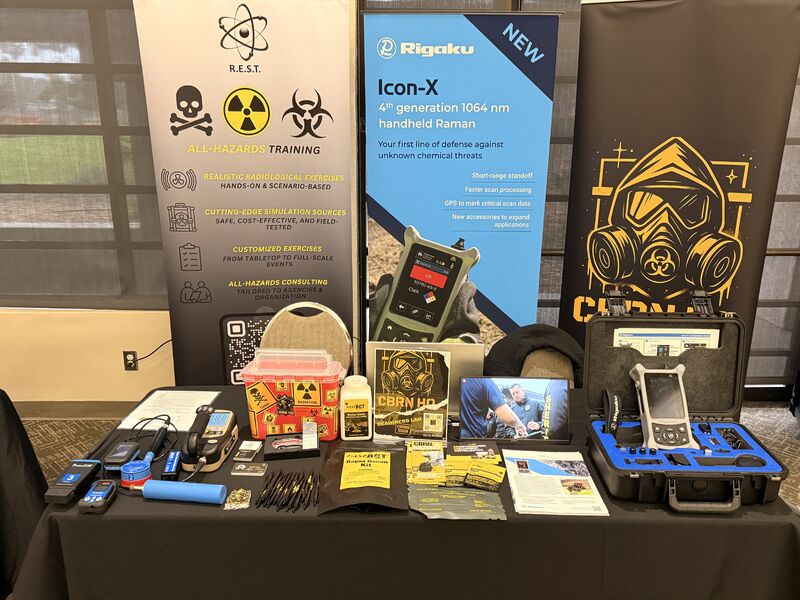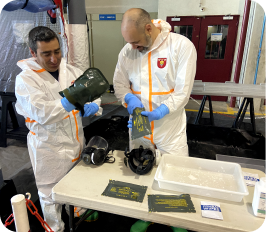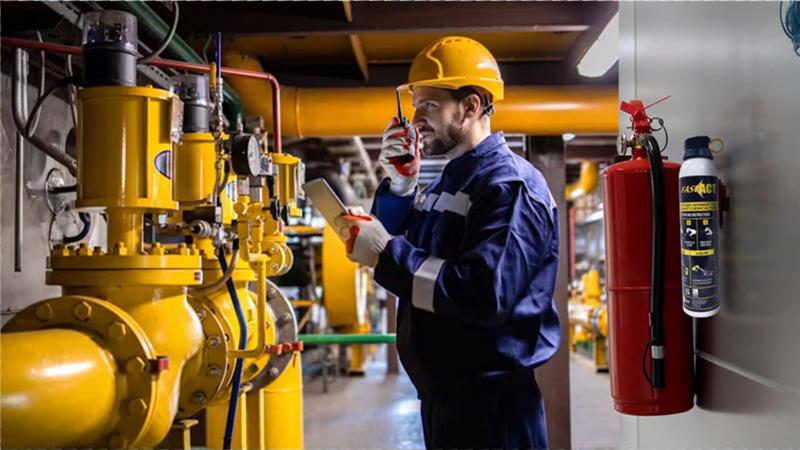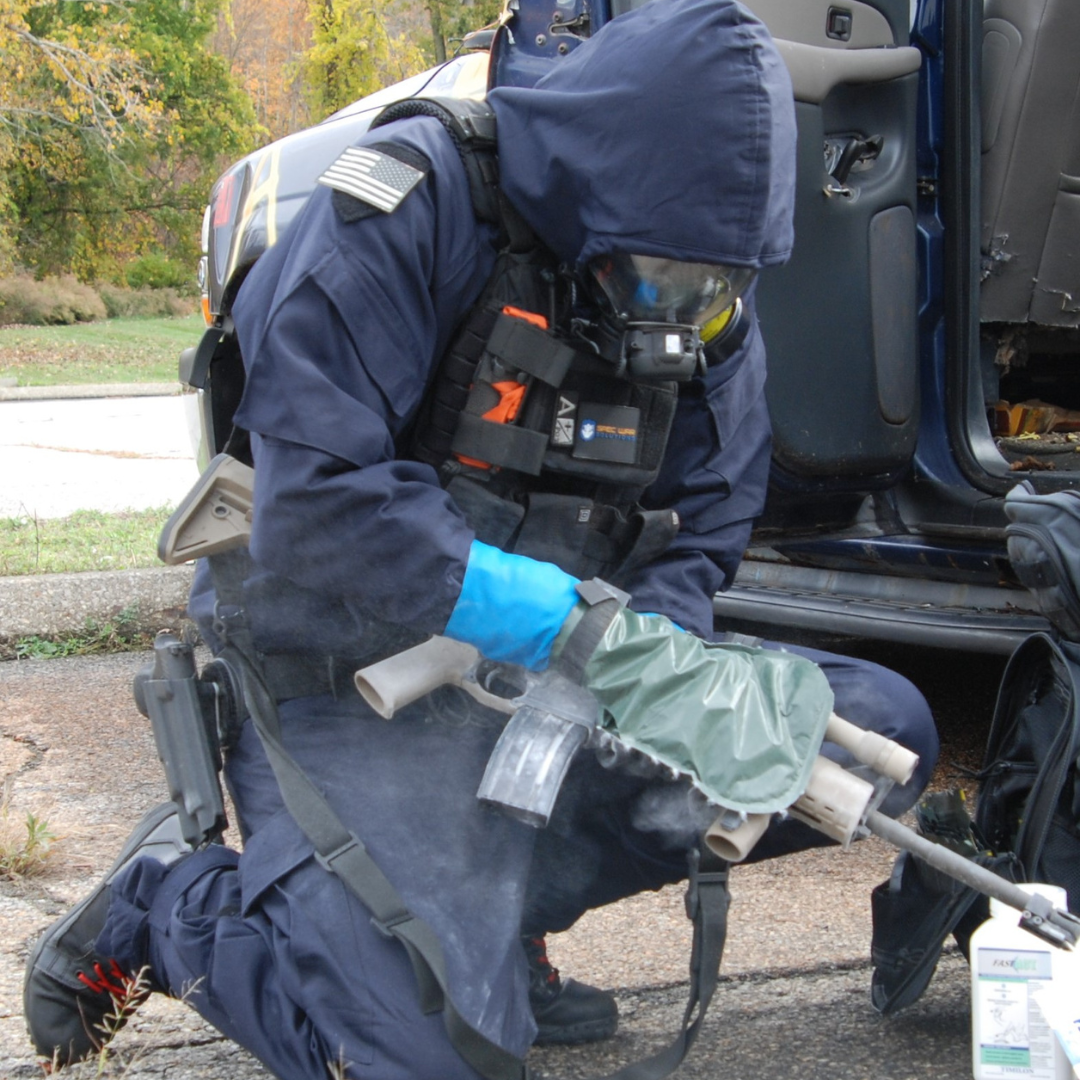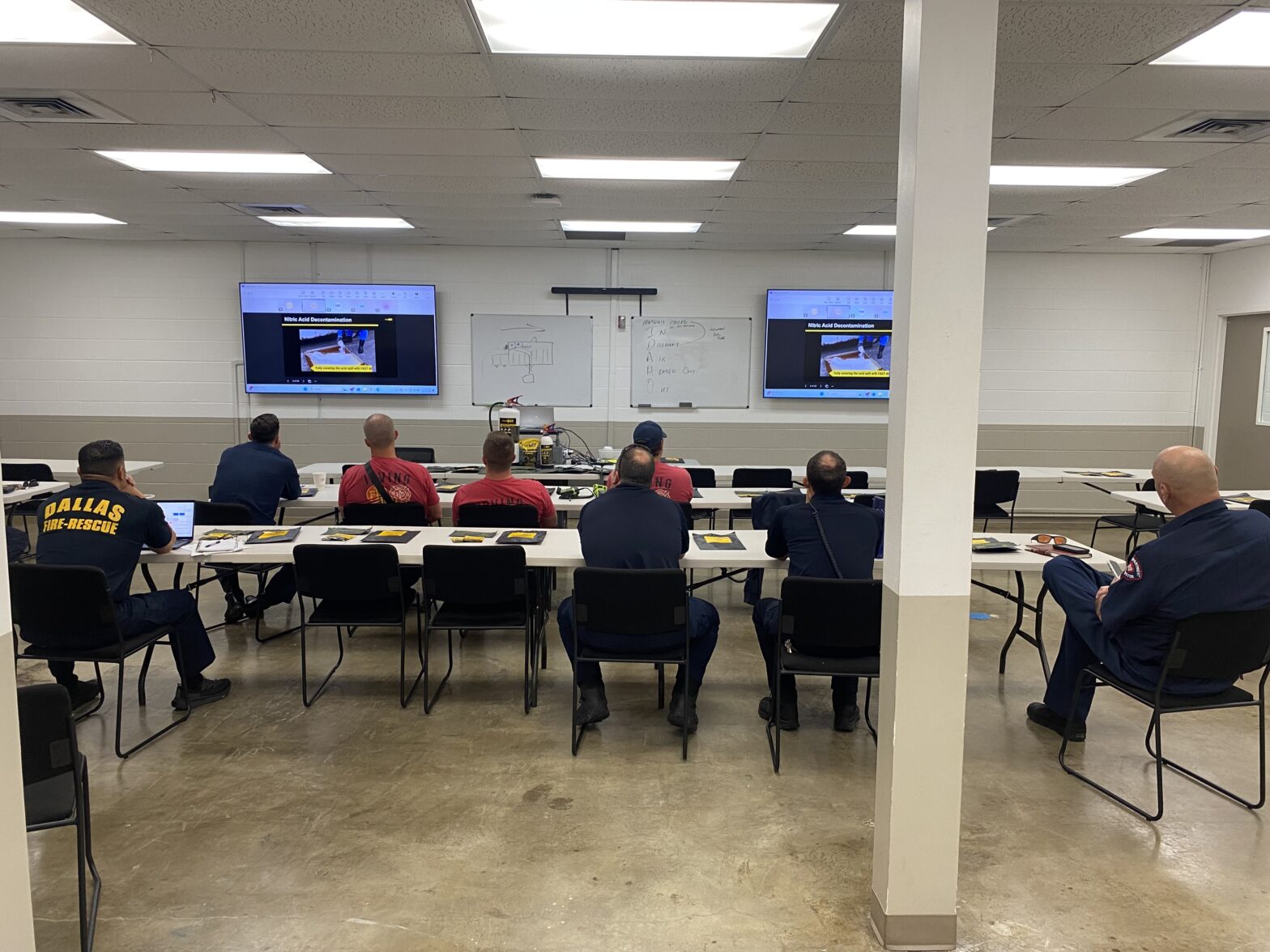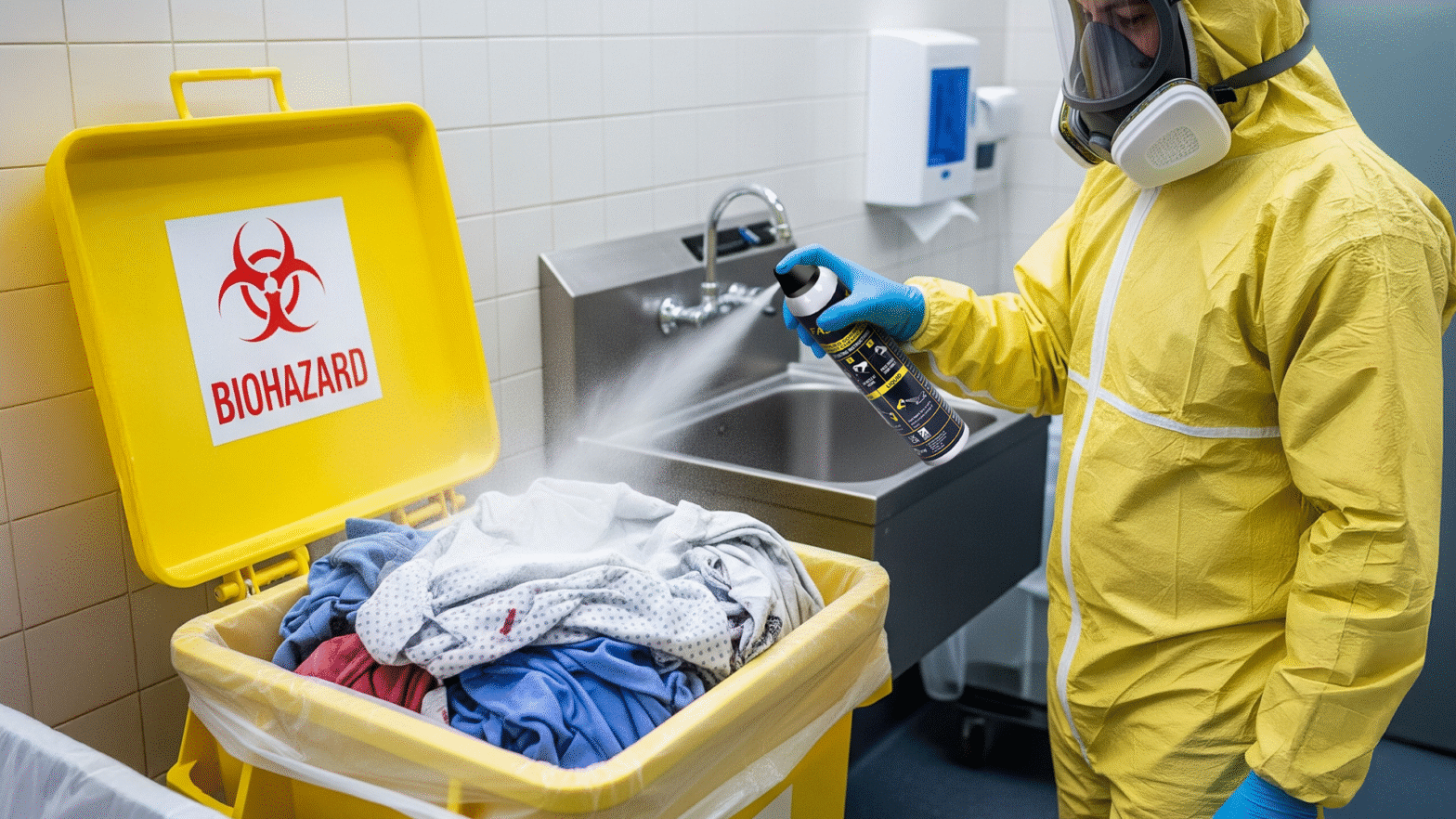As nations increase defense funding and expand industrial production capacity, one reality is becoming clearer: modern threats require stronger advanced chemical response readiness across military forces, emergency responders, hospitals, and industrial sectors. The European Parliament’s approval of its first-ever defense industry program—aimed at boosting continental manufacturing and rapid-response capability—illustrates a global shift toward addressing evolving… Continue reading How Global Defense Investments Signal a Growing Need for Advanced Chemical Response Readiness
Tag: FAST-ACT Pressurized Cylinders
Understanding Lithium-Ion Battery Chemical Hazards: What Recent Incidents Teach Us About Preparedness
This blog explores why battery failure produces dangerous hazardous fumes, how these events escalate into hazardous areas, and why emergency response personnel need fast, water-free neutralization methods to reduce chemical exposure.
FAST-ACT November Event Highlights: Advancing CBRN Readiness Across the Nation
This November, the FAST-ACT team continued its commitment to advancing chemical preparedness and CBRN defense through nationwide engagement and collaboration. From Charleston to Los Angeles and Fort Campbell, FAST-ACT and its partners showcased how dry decontamination technology enhances operational readiness and response efficiency across military, emergency, and defense sectors.
Safe Hazardous Package Handling: Lithium, Opioids, and Chemical Spill Response
While campaigns like USPS Hazmat Awareness Month help reinforce safety practices, incidents related to hazardous package handling can happen at any time of the year, from chemical spills to opioid exposure or lithium battery leaks.
Ensuring employee safety requires a combination of awareness, proper handling protocols, and practical chemical decontamination tools that can neutralize threats quickly.
When Seconds Matter: Lessons in Chemical Incident Preparedness from the Tennessee Explosion
The U.S. Chemical Safety Board (CSB) has launched an investigation into the October 10, 2025 explosion at Accurate Energetic Systems in McEwen, Tennessee, where 24,000–28,000 pounds of explosive material detonated, killing 16 workers and damaging the industrial chemical facility. Early findings suggest the blast began during heating operations and triggered secondary detonations in nearby storage areas. The incident underscores the ongoing need for robust chemical safety measures, emergency planning, and readiness for large-scale chemical incidents.
Eyes on the Zone: Securing FIFA 2026 Fan Areas Against Emerging CBRN Threats
This blog will cover how Emergency Response Teams, security sector professionals, and regional governments can integrate dry decontamination technologies and vapor threat neutralization strategies into their event playbooks to ensure safe, efficient, and scalable response to Chemical Warfare Agents, Biological attacks, terror incidents, or lithium-ion battery fires that may arise in high-density environments.
FAST-ACT Dry Decontamination Demo Strengthens Chemical Response Readiness in Dallas, TX
FAST-ACT conducted a live dry decontamination demonstration with the Dallas Fire Department and multiple Dallas-area agencies, showcasing how first responders can rapidly and safely neutralize chemical threats using FAST-ACT technology.
Securing 2026 Mega-Event Dry Decontamination Procedures: Why Chemical Decontamination Must Be Part of the Playbook
This blog will explain the scale and stakes of these events, highlight why chemical decontamination and decontamination methods are essential to safety, and reaffirm how FAST-ACT’s solutions merge with personal protective equipment (PPE) and multiagency workflow to deliver readiness, efficiency, and confidence.
Hospital Dry Decontamination: A Faster, More Efficient Approach to Emergency Response
During a mass casualty incident involving chemical agents or hazardous materials, every second counts. Hospitals must act quickly to protect patients, staff, and infrastructure while maintaining operations within the hospital environment. Traditional wet decontamination systems, which rely on large volumes of water and extended setup, can slow down an emergency response when speed is critical. … Continue reading Hospital Dry Decontamination: A Faster, More Efficient Approach to Emergency Response
FAST-ACT’s Hospital SOP: Advancing Chemical Decontamination Preparedness
In this blog, we will cover the essential steps of the FAST-ACT hospital SOP, explain how the FAST-ACT Pressurized Cylinders, FAST-ACT Decontamination Mitts, and FAST-ACT Decontamination Wipes are applied, and highlight the supporting science behind these hospital-focused decontamination protocols.



